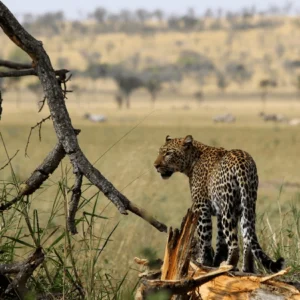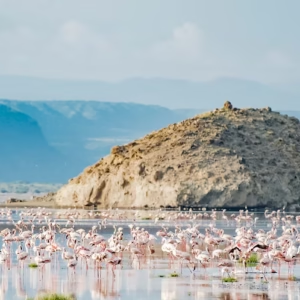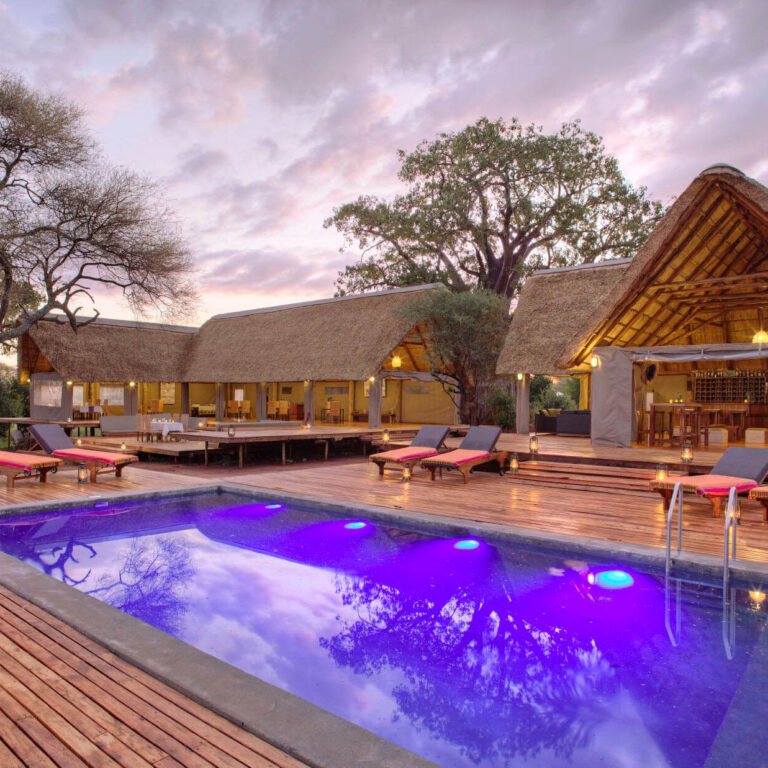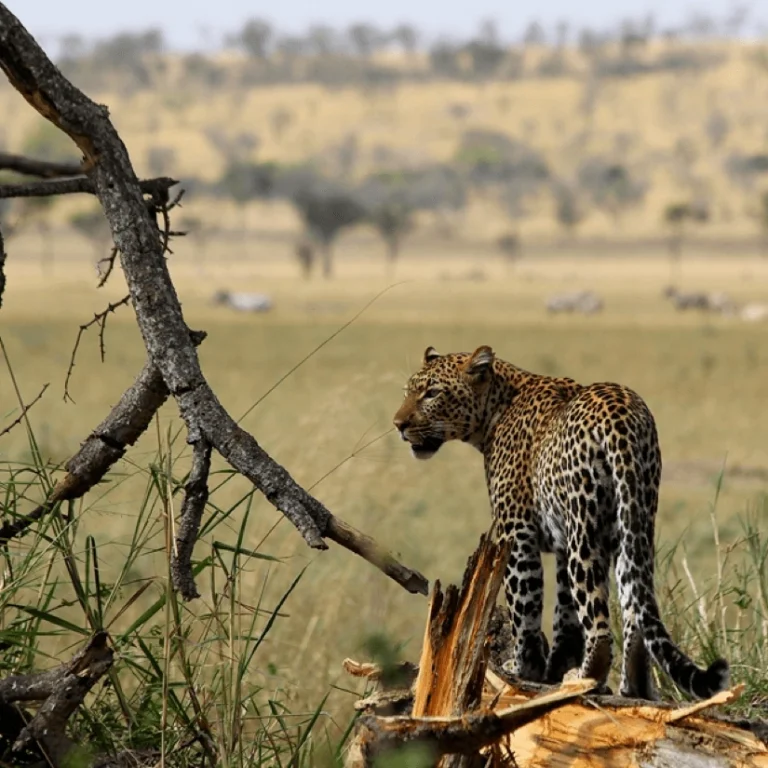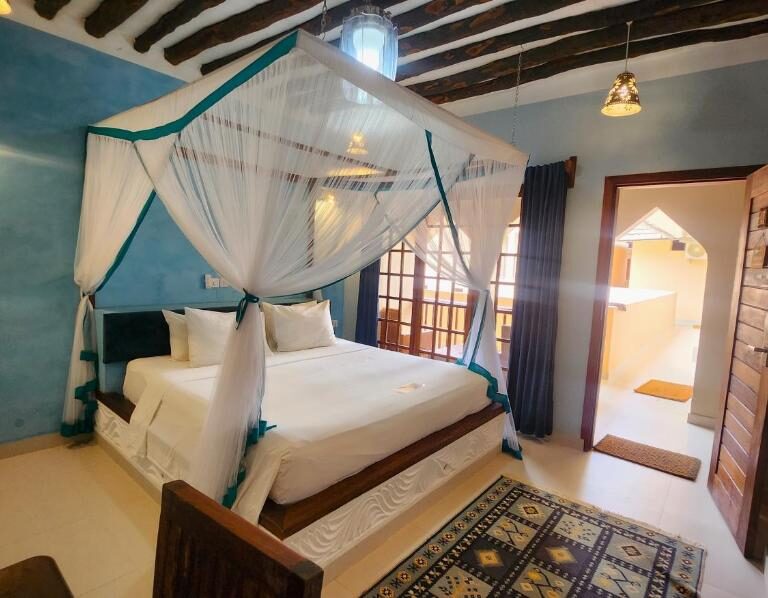Tanzania stands as one of the world’s premier safari destinations, offering unparalleled access to the Serengeti, Ngorongoro Crater, Mount Kilimanjaro, and other iconic landscapes. But for many travelers, the cost of a Tanzanian safari often sparks the question: Why are safaris in Tanzania so expensive? The answer lies in a unique combination of factors—ranging from conservation efforts to logistics and service standards.
Tanzania safaris are expensive because of their high-value model, which funds conservation efforts and supports local communities, coupled with high operational costs due to remote logistics, the need for private and high-quality service, and government taxes and park fees that ensure the quality and sustainability of the experience. Tanzania’s limited visitor numbers and expensive, all-inclusive packages further contribute to the overall high price point for visitors.
Conservation & Community Support: Protecting Wildlife and Empowering Locals
A significant portion of every safari dollar goes directly toward wildlife conservation and community development. Tanzania is home to some of the richest biodiversity on Earth, including critically endangered species. Maintaining national parks and game reserves requires immense financial resources—for anti-poaching patrols, habitat preservation, and ranger salaries. Additionally, safari operators often work hand-in-hand with local communities, providing employment, healthcare, and education. These community-based tourism models ensure that local people benefit directly and that the ecosystem remains protected for future generations.
Logistical Challenges: Remote Destinations Demand Complex Operations
Unlike city tourism, safaris involve travel to remote, rugged areas with little to no infrastructure. Getting travelers safely and comfortably into the wild means flying small planes into bush airstrips, building lodges in isolated regions, and trucking in all supplies—from fresh food to fuel and clean water. Every safari vehicle must be specially outfitted for the terrain, often custom-designed and maintained in-country. The costs of importing, repairing, and fueling these vehicles across great distances add considerably to overall expenses. African safaris can be expensive for several reasons. Firstly, the cost of maintaining and protecting the wildlife and natural habitats in Africa is high.
High-Quality Service: World-Class Hospitality in the Wild
Tanzania’s safari lodges and camps are known for their exceptional service standards. Guests enjoy gourmet meals, luxurious tented suites, private game drives, and personal butlers—all in the heart of the African wilderness. Maintaining this level of service in remote areas necessitates hiring highly trained staff, offering competitive wages, and sourcing high-quality materials and supplies. This elevated hospitality is not a luxury add-on—it is a core part of the safari experience, and it contributes to the premium price tag.
Exclusivity and Limited Capacity: Fewer Guests, More Experience
Tanzania’s national parks and conservancies enforce strict limits on the number of visitors and vehicles allowed at any one time. This ensures an uncrowded, immersive experience and protects the fragile ecosystem from over-tourism. Luxury lodges often operate with only 6 to 20 guests at a time, maintaining a low-impact, high-experience model. But with fewer guests to share operational costs, the price per person naturally increases.
All-Inclusive Experience: Everything’s Covered—And Curated
Tanzanian safaris are typically all-inclusive, meaning your rate covers accommodations, meals, game drives, park fees, guides, local flights, transfers, and often laundry and drinks. This model spares guests from constant tipping or hidden costs, offering peace of mind and seamless travel coordination. Behind the scenes, these arrangements demand an immense amount of planning, coordination, and contingency preparation, which are built into the overall cost.
Government Taxes & Levies: Supporting National Infrastructure
Tanzania safaris are expensive primarily due to significant government taxes, park fees, and levies that fund conservation efforts and national infrastructure, which are essential for protecting iconic ecosystems and the high-profile wildlife within them. These costs also cover the expense of operating in a vast country with remote areas, requiring specialized 4×4 vehicles, professional guides, and expensive logistical support, all contributing to the high price of a Tanzanian safari. The Tanzanian government imposes multiple taxes and park fees to support tourism infrastructure, conservation, and community programs. Visitors often pay:
Value Added Tax (VAT) of 18%
Conservation fees for parks and reserves
Concession fees for staying in protected areas
Tourism development levies
These costs are non-negotiable and significantly contribute to the final price of a safari.
High Season Demand: Premium Pricing During Peak Months
Tanzania safaris are expensive in high-demand peak months (primarily the dry season, June–October) due to high tourist demand for excellent wildlife viewing, especially the Great Migration. This increased demand drives up prices for the limited supply of safari services, accommodations, and transport. Additionally, national park entrance fees, operational costs, and the exclusivity of world-renowned locations like Serengeti and the Ngorongoro Crater contribute to the higher costs, as tour operators and lodges increase prices to meet demand and maintain quality.
Safari prices in Tanzania fluctuate based on demand. During high season (June to October and December to early January), prices surge due to the Great Migration in the Serengeti and favorable weather. With limited accommodation and vehicle availability, premium rates reflect both the high demand and the enhanced experiences available—such as witnessing river crossings or calving season.
Safari Guides and Expertise: Exceptional Talent Costs More
The best safaris hinge on the skills and knowledge of expert guides. Tanzania’s top guides undergo years of training in wildlife behavior, tracking, photography, and safety protocols. Many speak multiple languages and are trained in hospitality and emergency care. These guides are the heart of the experience, and compensating them fairly is essential to maintaining high standards. Their wages, training, and retention costs are factored into safari pricing.
Equipment and Safari Gear: Premium Tools for Premium Experiences
From custom 4×4 safari vehicles with pop-up roofs and charging ports to high-quality binoculars, camera mounts, and satellite communications, safaris in Tanzania are supported by advanced and costly equipment. Lodges also provide gear like rain ponchos, hiking boots, insect repellents, solar power systems, and backup generators to ensure guest comfort and safety—especially in remote bush settings.
Government Regulations and Licensing: Compliance Isn’t Cheap
Tanzania’s high safari costs stem from mandatory, steep government-imposed park and conservation fees, high operating costs for permits to build in protected areas, and the necessity to support a “high price, low density” model for fragile ecosystems, which translates to higher per-person costs for exclusive, smaller groups with high-quality guides and luxury lodges. Safari operators in Tanzania must adhere to stringent regulations and licensing standards. These include:
Annual business and tourism licenses
Operating permits for specific regions
Mandatory insurance for vehicles and guests
Environmental impact assessments
Each of these requirements comes with significant administrative and financial overheads, further influencing the price of safaris.
Security and Safety Measures: Protecting Travelers at All Costs
Tanzania safaris are expensive because the high costs cover park and conservation fees funding wildlife protection and community support, specialized 4×4 vehicles for rough terrain, experienced and well-paid guides ensuring safety and providing unique experiences, the complex logistics of transporting supplies to remote lodges, and the investment in high-quality, often eco-friendly, facilities and services that provide a safe and memorable safari. Ensuring the safety and well-being of guests in remote locations is a major responsibility. Safari companies invest heavily in:
Emergency evacuation services
24/7 communication systems
On-site medics or first aid-trained staff
Rigorous vehicle maintenance
These safety layers are vital—and costly—but they provide peace of mind and reduce risks in environments where hospitals may be hundreds of kilometers away.
International Travel Costs: A Factor Beyond the Safari
While not included in the safari package itself, international airfare to Tanzania—often involving long-haul flights—adds to the perceived expense. Most travelers arrive via Kilimanjaro International Airport or Julius Nyerere International Airport, both of which have fewer direct flights, often raising the price of travel. Also, Tanzania safaris are expensive due to a combination of high park fees, the remoteness of prime wildlife areas requiring costly charter flights, premium accommodation and guiding, and all-inclusive package pricing. Limited infrastructure for public transport and a focus on high-quality, exclusive experiences further contribute to the significant investment required for a Tanzania safari.
- Visas, COVID-19 requirements (where applicable), and travel insurance further contribute to overall costs.
- Internal Flights: Beyond international flights, you’ll need to budget for flights within Tanzania to reach national parks and reserves.
- Travel Insurance: Essential for any international journey, travel insurance protects against unforeseen events.
- Government Levies: In some areas, such as Zanzibar, you might encounter tourist levies charged by hotels.
- Tips and Souvenirs: These are discretionary expenses to consider for your overall budget.
Premium Photography Opportunities: Once-in-a-Lifetime Shots
Many safaris cater to serious wildlife photographers who demand specialized vehicles, private guides, and the flexibility to wait for the perfect shot. Operators invest in vehicles with swivel seats, lens racks, and open-roof designs, and guides are trained to position vehicles with lighting and angles in mind. This niche expertise comes at a premium but enables travelers to return with world-class photos of lions hunting, elephants bathing, or wildebeests migrating.
Safari Duration and Itinerary: Longer Trips Cost More
Most Tanzanian safaris range from 7 to 14 days, often covering multiple regions like the Serengeti, Tarangire, Lake Manyara, and Zanzibar. The longer the itinerary and the more diverse the destinations, the higher the cost due to added transfers, park fees, and logistical coordination.
Multi-destination itineraries also require internal flights or long overland drives, both of which raise overall prices.
Additional Activities and Excursions: Beyond the Game Drive
Tanzania safaris are expensive due to the high costs of logistics and infrastructure, such as transporting supplies to remote areas and maintaining high-quality, often all-inclusive, accommodations. These prices also cover essential factors like expert guides and trackers, large conservation fees that fund wildlife protection and park maintenance, and the overall high standards of service and comfort provided. Additional activities, like hot air balloon safaris, also increase the overall price of a trip. Luxury safaris often include or offer extraordinary excursions, such as:
Hot air balloon rides over the Serengeti
Walking safaris with armed rangers
Cultural visits to Maasai villages
Night game drives in private conservancies
These experiences elevate the safari but come with additional equipment, staffing, and permits, which increase the cost of the overall trip.
Are Tanzania safaris worth the high cost?
Absolutely! Tanzania safaris offer a once-in-a-lifetime opportunity to witness Africa’s iconic wildlife in their natural habitats. The exceptional experiences, breathtaking landscapes, and conservation efforts make the investment worthwhile.
Can I find budget-friendly safari options in Tanzania?
Yes, there are more affordable safari options available, especially during off-peak seasons. However, keep in mind that budget safaris may have fewer amenities and exclusive experiences compared to luxury packages.
How can I ensure I get the best value for my money on a Tanzanian safari?
Research and compare safari packages from reputable operators. Look for packages that include essential experiences, knowledgeable guides, comfortable accommodations, and excellent customer reviews.
What is the best time to visit Tanzania for a safari?
The best time for a safari depends on the wildlife events you wish to witness. For the Great Migration, visit between July and October. For calving season, visit from January to February. Consider your preferences and plan accordingly.
Are there any hidden costs I should be aware of when booking a safari?
Some safari packages may not include park fees, conservation levies, or optional activities. Be sure to clarify all costs with your safari operator before booking to avoid surprises.
Why even tented camps safaris are so expensive?
Tented camp safaris are expensive due to high logistical costs in remote areas, requiring special flights and transport for supplies and staff, which drive up prices for all-inclusive rates. High staff-to-guest ratios, significant park fees, conservation levies, and significant annual maintenance and operating expenses also contribute to the high costs. Additionally, many high-end tented camps are located in coveted, low-volume regions like Botswana, where a “low-volume, high-cost” model limits pressure on wildlife and environments, making the experience more exclusive and expensive.
Is an African Safari Worth It? What You Need to Know
Yes, an African safari is considered worth the cost by most travelers, offering a unique and memorable experience of seeing wildlife in its natural, unfenced habitat, which is far beyond what a zoo can provide. You should know that safaris are expensive because all-inclusive packages cover logistics, guides, lodging, and food. To get the most value, choose a reputable safari operator, select a prime wildlife destination like Botswana, Kenya, or Tanzania, and consider an all-inclusive package for ease and a memorable experience.
An African safari for every budget
An African safari is possible for any budget, with prices ranging from approximately $150 per day for budget safaris involving group tours and basic lodges to $750+ per day for luxury experiences with high-end service and exclusive lodges. You can save money by opting for group tours, basic accommodation like camping, or visiting during the off-peak season, while choosing countries with lower costs, such as South Africa, can also provide more affordable options.
Can I negotiate the safari price with operators?
While some operators may be open to negotiation during off-peak seasons, keep in mind that reputable operators have fixed costs for providing quality services. Focus on finding value rather than solely bargaining.
Why is the Ngorongoro Crater Safari so expensive?
Ngorongoro Crater safaris are expensive because of high, government-mandated park and conservation fees, limited access to preserve the fragile ecosystem, high demand for a unique and concentrated wildlife experience, the cost of exclusive and luxurious accommodation within or near the area, and the overall logistical challenges of operating in remote areas. These costs are necessary to fund wildlife conservation, anti-poaching efforts, and support the local communities living in the Ngorongoro Conservation Area.
Why is a Serengeti Safari so expensive?
Serengeti safaris are expensive due to high operating costs in a remote location, requiring flights and specialized transport for supplies and staff, significant park and conservation fees for wildlife and habitat protection, and demand for high-quality, often all-inclusive, luxury experiences with premium services, gourmet meals, and exclusive game drives. Seasonal demand, particularly during the Great Migration, further increases prices by driving up accommodation and service costs.
Is it more expensive during the Great Migration?
Absolutely. The Great Migration is one of the most sought-after wildlife spectacles on Earth, and it takes place largely in Tanzania’s Serengeti. During peak months (June–October), demand for lodges and guides skyrockets, and prices go up accordingly. Camps fill quickly, and last-minute deals are rare.
Why do safaris in Tanzania cost more than other countries?
Tanzania offers some of the most exclusive and well-protected wildlife destinations on the continent, such as the Serengeti, Ngorongoro Crater, and Selous. The country emphasizes low-impact, high-quality tourism, meaning fewer tourists and better experiences—but at a higher cost. Add in high park fees, logistics, and conservation efforts, and you have a premium safari product.
Why Climbing Kilimanjaro is Too Expensive?
Why Are African Safaris So Expensive?
Most Remote Places In Africa Worth Visiting
Kilimanjaro price list
African Safari Cost
Conclusion: Why are African safaris so expensive
In conclusion, the expense of safaris in Tanzania is justified by the incredible wildlife diversity, conservation efforts, luxury accommodations, expertise of safari guides, and unique experiences that are unmatched anywhere else in the world.
The investment in a Tanzanian safari goes beyond witnessing wildlife; it supports conservation, sustains local communities, and leaves travelers with unforgettable memories. So, if you are an adventurer seeking an extraordinary journey through the African wilderness, embrace the cost of a Tanzanian safari, and embark on an adventure of a lifetime. TripAdvisor Reviews


